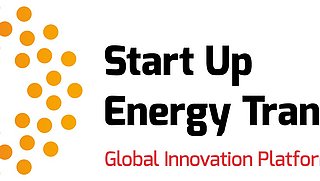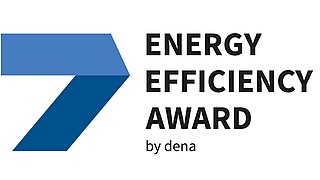Room for improvement in the exchange of data
A recent industry survey conducted by dena as part of the establishment of the data institute shows both the importance of the exchange of data across all companies in the energy industry as well as the existing hurdles.
-
 © HoffotografenSebastian Boie
© HoffotografenSebastian BoieSenior Expert, Communications T: +49 30 66 777 - 168 sebastian.boie(at)dena.de
Berlin, Germany, 23 May 2024. The energy industry is unanimous, seeing a great need for improvement in data exchange processes that span all companies. This is the result of an industry survey conducted by dena’s Future Energy Lab (FEL). The results will be used to analyse the current status and needs of the energy sector in terms of the exchange of data and to support the establishment of the German government’s new data institute. In all likelihood, this will also have to deal with similarly diverse landscapes of stakeholders beyond the energy industry in the future.
The survey shows that the exchange of data in the energy industry needs to be improved in terms of market communication as well as other areas. Market communication covers the exchange of information between market participants, in which clear responsibilities of the participants as well as standardised and automated market processes and data formats are defined. For example, this involves the energy management processes when customers switch electricity suppliers. At least 85 per cent of participants see a need for improvement here.* There is also still great potential for optimisation in processes not related to market communication, such as the exchange of data across sectors.
Various legal, organisational, strategic, technological and economic obstacles need to be overcome. Aside from market communication, the individual barriers affect more companies overall. Here, the lack of data compatibility (63 per cent) stands out. The survey also attributed great importance to a lack of digital or data strategies within individual companies.
Philipp Richard, Head of Digital Technologies & Startup Ecosystem at dena, points out that ‘the lack of a digital or data strategy in the company inhibits the cross-company exchange of data for around 50 per cent of the participating companies when it comes to areas not related to market communication. This is a good example of the fact that there are definitely areas where the industry can take direct action itself.’
Overall, the participating energy industry experts see great potential in the sovereign exchange of data and categorise it as critical to the success of both companies and the achievement of climate protection targets. A solid data basis and infrastructure are essential for numerous applications in the increasingly digitalised, flexible energy system. Yet, it needs to be possible to share data at suitable points at the same time. This can create major economic opportunities that benefit the general public in the exchange of data within and between the stages of the value chain. However, this potential has not yet been tapped. In a self-assessment, energy companies have already achieved an average of 35 per cent of their ideal target status for the exchange of data across companies. And companies that do not generate energy, such as plant manufacturers, research institutions and associations, only see an average of 20 per cent here.
The future data institute of the German government can also provide support in several areas. Of the possible tasks of a data institute, the industry sees helpful support above all in cross-sector offerings such as the establishment of standards and links to other industries when it comes to exchanging best practices and the exchange of data across sectors.
A total of 280 experts from the energy industry took part in the survey entitled ‘The exchange of data in the energy industry’. Of the respondents, energy companies make up 46 per cent: grid operators, energy service providers, energy suppliers, producers, metering point operators and energy traders. Fifty-four per cent represent companies that do not generate energy. These include research organisations, public institutions, plant manufacturers and industry associations, for example. The largest group is made up of grid operators (19 per cent). Managers provided the responses in 49 per cent of the cases. Overall, we can see that there is a high level of interest from the industry. The results of the survey paint a differentiated picture of the status quo on the subject of data exchange processes in the energy industry. At the same time, they raise various questions that need to be answered in order to successfully improve the exchange of data across companies and sectors and to establish a data ecosystem in the further course of the project, such as the question of a common objective.
Please visit our website at https://future-energy-lab.de/projects/dateninstitut-domaene-energie/ for further information about the project.
You can also find the detailed results in a fact sheet here: https://future-energy-lab.de/app/uploads/2024/05/240522_dena_Factsheet_Umfrage-Datenaustausch.pdf.
About Module 2 – Use case for the energy domain of the German government’s data institute
The aim of the ‘Smart integration of decentralised plants’ use case is to address important issues relating to the exchange of data among the different players, the removal of existing data silos and the development of data governance using the energy industry as an example and to identify and discuss various solution approaches. The findings are intended to provide added value for the energy industry by clearly identifying challenges as well as compiling and sharing solutions. Further, the findings are to be transferred to the data institute, which is in the process of being established, and help better align its capabilities and organisation with the needs of complex stakeholder landscapes.
* Percentage varies by group (see fact sheet for a more detailed breakdown).


![[Translate to English:]](/fileadmin/_processed_/2/e/csm_250318_JDENA_PHT021_01_cc4dc7d460.jpg)